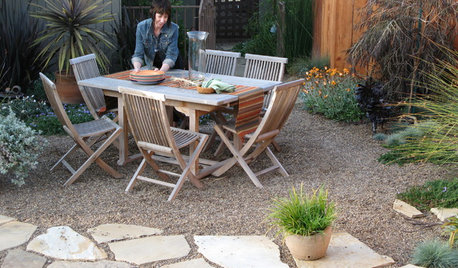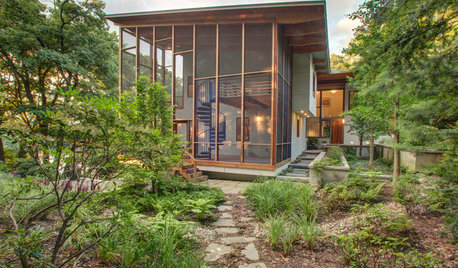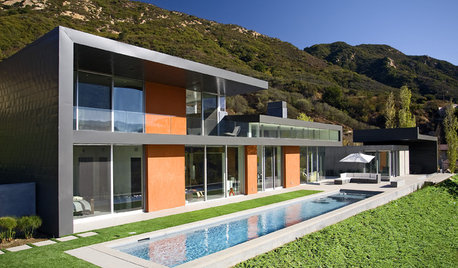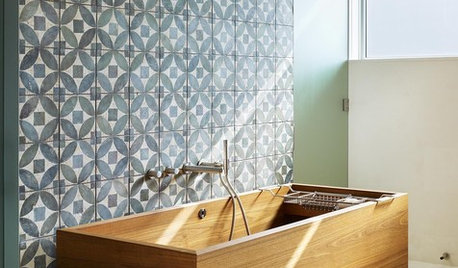Free Hot Water from A/C
garymunson_2009
14 years ago
Related Stories

HOUSEKEEPINGHow to Remove Water Rings From Wood Tables
You may be surprised by some of these ideas for removing cloudy white water marks from wood surfaces
Full Story
LANDSCAPE DESIGN15 Great Ideas for a Lawn-Free Yard
End the turf war for good with hardscaping, native grasses and ground covers that save water and are easier to maintain
Full Story
HOUSEKEEPINGEasy Green: Steam Cleaners for a Chemical-Free Sparkle
Deep clean and sanitize by harnessing high-temperature water for floors, curtains and clothes as immaculate as they are healthy
Full Story
GARDENING GUIDESGet on a Composting Kick (Hello, Free Fertilizer!)
Quit shelling out for pricey substitutes that aren’t even as good. Here’s how to give your soil the best while lightening your trash load
Full Story
GARDENING AND LANDSCAPINGBreezy and Bug-Free Modern Porches
Screening keeps pests out of these diverse porches across the U.S., while thoughtful designs keep them visually appealing
Full Story
LIFEModern Manners for Conflict-Free Family Visits
Avoid thermostat wars, pet peeves and the great shower squeeze with these tips for having family as houseguests
Full Story
LIFE10 Ideas for Making Screen-Free Play a Reality
Here's how to tempt your children with activities that will encourage their creativity and keep them away from the TV
Full Story
FIREPLACES12 Hot Ideas for Fireplace Facing
From traditional brick to industrial steel, there’s a fireplace cladding here to light up your design
Full Story
GARDENING AND LANDSCAPINGPool Design Flows From Home Lines
From straight to curvy to free form, here's how to design a pool that reflects your home inside and out
Full Story
BATHROOM DESIGNTake Cues From Japan for a Zen-Like Bathroom
Escape stress the Japanese way: with a blissful soak in a tub amid natural materials and minimalist beauty
Full Story





mikie_gw
loves2read
Related Professionals
Little Ferry Solar Energy Systems · Eden Prairie Solar Energy Systems · New Lenox Solar Energy Systems · Honolulu Design-Build Firms · Plum Design-Build Firms · Centralia Home Builders · Ives Estates Home Builders · Waimalu Home Builders · Charleston Roofing & Gutters · Columbus Roofing & Gutters · Fairfax Roofing & Gutters · Oklahoma City Roofing & Gutters · West Chester Roofing & Gutters · La Grange Park Roofing & Gutters · South Orange Roofing & Guttersgarymunson_2009Original Author
gardurnit
gardurnit
guido_gardener
steveski94
garymunson_2009Original Author
garymunson_2009Original Author
loves2read
srercrcr
garymunson_2009Original Author
gardurnit